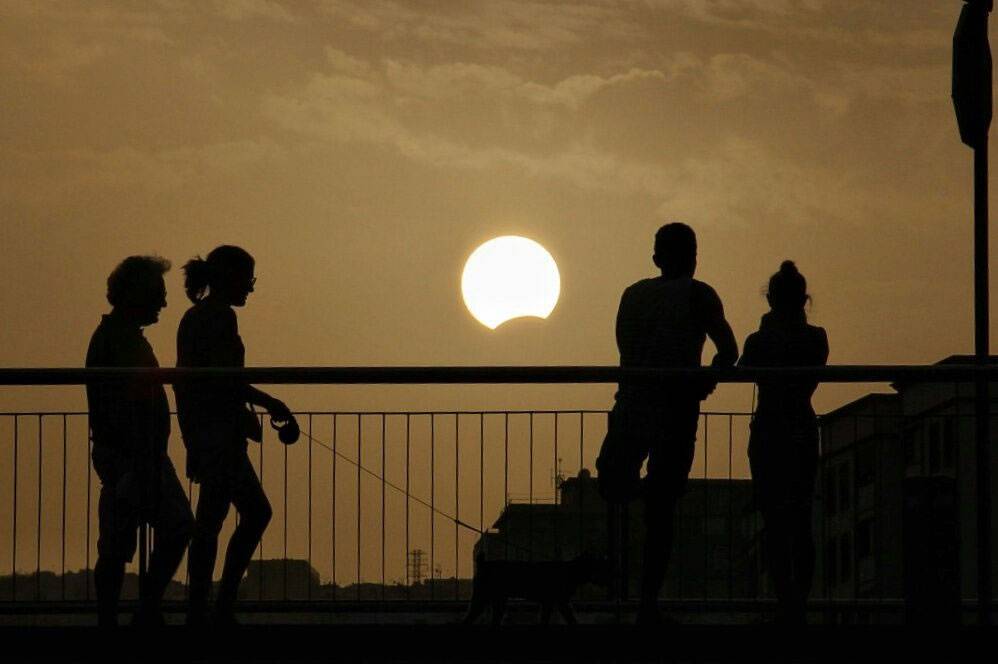Recommendations for viewing the partial solar eclipse from the Canary Islands tonight
- 08-04-2024
- Tenerife
- Canarian Weekly
- Photo Credit: Efe
The solar eclipse scheduled for tonight, Monday, will be a minor event in the Canary Islands, with the Moon covering just about 2% of the Sun starting from 8:17pm, which shouldn't discourage people from heading to higher areas to witness the fascinating phenomenon, as for about ten minutes, the lunar disk meets the solar disk and overlaps it in a small part.
Alfred Rosenberg, a researcher at the Institute of Astrophysics of the Canary Islands (IAC), explained to EFE that this astronomical event can be observed when the Sun is very close to the horizon and will last until around 8:27pm when it is scheduled to set.
It will only be visible from Tenerife and the western islands if you have a clear view of the sunset, preferably over the ocean, and you will have more observation time the higher you are watching it from.
HOW IMPRESSIVE WILL IT BE?
While Canada, Mexico, and the United States will enjoy a total eclipse, in the west of the Canary Islands, as well as in Pontevedra and Coruña, it will only be partially visible.
This leads scientists to warn that the eclipse will be "totally anecdotal" in the islands, without any scientific relevance. Therefore, no astronomical operations will be taking place at the Canary Islands Observatories, except for a recording with an astrophotographer at the Izaña Observatory in Tenerife.
THE NEXT TOTAL ECLIPSE IS OVER 200 YEARS AWAY
Tonight is an opportunity to observe a glimpse of a phenomenon that won't be fully visible in the Canary Islands until 2243 when a total solar eclipse is expected, likely to be "quite spectacular," as it will occur around mid-morning.
However, in the north of Lanzarote, an almost total eclipse will be visible in 2078 during sunset, and mainland Spain will enjoy total solar eclipses on August 12th, 2026, and August 2nd, 2027, as well as an annular solar eclipse on January 26th, 2028.
Annular solar eclipses occur when the Moon is at the farthest point from its orbit, preventing it from completely covering the Sun.
An eclipse occurs when the Moon aligns perfectly to intercept between the Sun and the Earth, blocking the solar disk and causing darkness similar to nighttime, and total solar eclipses occur approximately every year and a half and only fully affect a narrow strip on the planet's surface.























































